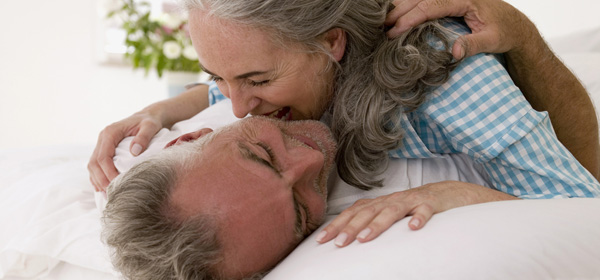More than eight in 10 Australian health professionals believe it is important to talk to heart attack survivors about sexual activity and intimacy, yet fewer than one in four do so regularly.
The Heart Foundation is urging patients and health professionals to put any embarrassment aside and talk about sexual activity and intimacy after analysing the findings from its survey.
Heart Foundation Queensland Health Director Rachelle Foreman said that resuming sexual activity and, just as importantly, emotional intimacy, are important for quality of life for patients and their partners.
The survey showed that health professionals were more comfortable discussing sexual activity and intimacy with women than with men.
Only just over half reported being comfortable discussing sexual activity and intimacy with people from all cultures and backgrounds, according to the survey of 251 health professionals across Australia.
“Heart attack survivors are worried about having another heart attack, performance, and over-exertion,” Ms Foreman said.
“Depression, fatigue, a lack of cardiac fitness, pain or discomfort, and sexual dysfunction, including low libido, can also play a role.
“Two out of three heart attack survivors tell us that having a heart attack had affected their sexual activity, yet only one in four had spoken with a health professional about it. That’s what prompted us to ask health professionals for their perspective, so that we could provide better information for both patients and health professionals.”
National Heart Foundation Chief Medical Advisor, Professor Garry Jennings, said the new survey results showed that while most health professionals recognised the importance of talking to patients about sex and intimacy, many lacked the time, confidence, protocols or resources to do so.
“This isn’t something we generally talk about openly with others, and health professionals are not exempt from feeling uncomfortable about it – in fact, many of those directly managing people with heart attack have not had a lot of training on sex and intimacy advice,” Prof Jennings said.
“What they can do is try to put themselves in the position of the patient and listen – both to what is said and what is not said about these important aspects of life,” he said.
The professionals surveyed felt that GPs and cardiac rehabilitation specialists were best placed to discuss sex and intimacy with patients, followed by cardiologists (re sexual activity) and counsellors (re intimacy).
“Everyone needs to play a part,” Professor Jennings said.
“If it’s not covered by health professionals during recovery, it can play on patients’ minds and cause misconceptions and unnecessary anxiety.
“It is stressful enough to have survived a heart attack and to resume normal life without the added burden of not knowing whether, and when, to resume intimate relations.”
He urged patients to raise the issue with their doctors, or to seek support from counsellors.
“There is a natural shyness in many patients to raise it themselves, but if you can get over the hurdle of asking, chances are you will find the answers less complicated and scary than you imagined,” Prof Jennings said.
Are you comfortable talking about sex with your doctor? Have you suffered a heart attack? Has it affected your sexual activity?
Related articles:
Sex and older women
Sex secrets of long-term couples
Sex-drive supplements for women

